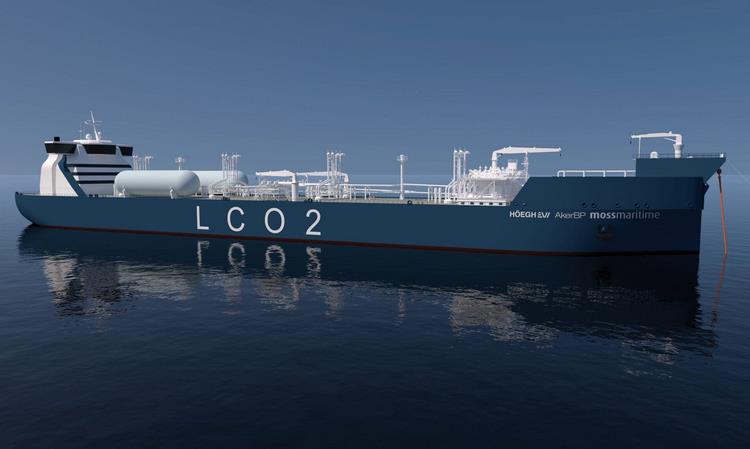
Höegh Evi and Aker BP have been awarded an Approval in Principle (AiP) from DNV for a next-generation liquefied CO2 (LCO2) carrier. The vessel, developed in Norway by Höegh Evi, Aker BP and Moss Maritime, is designed to transport captured CO2 safely and cost-efficiently from European industrial emitters to offshore sequestration sites on the Norwegian Continental Shelf (NCS).

Pioneering a new class for CO2 shipping
DNV’s Approval in Principle includes a comprehensive assessment of the vessel’s design, including its onboard CO2 conditioning module. It is the first to be reviewed under DNV’s new CO2 RECOND class notation, developed specifically for CO2 handling and conditioning.
The approval marks a significant step in enabling the Carbon Capture and Storage (CCS) value chain and industrial decarbonization in Europe.
'This designation from DNV affirms the strength of our technical solution, which is key to realizing Höegh Evi and Aker BP’s unique CCS offering. Together, we can deliver a cost-efficient path to decarbonization, by connecting large-scale carbon emitters to permanent storage offshore,' said Nils Jakob Hasle, EVP Clean Energy at Höegh Evi.
'We are excited to leverage Aker BP’s extensive upstream expertise to mature and develop CO2 storage solutions on the Norwegian Continental Shelf. We appreciate the integrated and collaborative efforts with Höegh Evi in the development of the CCS value chain. This innovative design with designation from DNV is expected to set new benchmarks in safe, cost-efficient, and sustainable large-scale CO2 transportation and storage,' said Ørjan Jentoft, Asset Manager for CCS at Aker BP.
'DNV is pleased to collaborate with such a strong consortium of partners to help bring this large-scale CCS project closer to realization. This AIP demonstrates how maritime regulations with DNVs new class rules can support the development of safe and cost-efficient solutions for CO2 transportation and offshore injection – an essential step toward building cost-effective CCS value chains,' said Christina Saenz de Santa Maria, COO at DNV Maritime.
Part of an integrated solution for CO2 transport and storage
The next-generation liquefied CO2 (LCO2) carrier is a key part of a fully integrated carbon removal option for both large and dispersed EU emitters. By integrating CO2 conditioning and offloading capabilities directly into the shuttle carriers, the design minimizes complexity, reduces risk of impurity co-mingling and ensures reliable injection into offshore reservoirs. Two approved variants of CO2 vessels will offer total capacities of up to 50,000 m³ of liquid CO2.
Höegh Evi and Aker BP’s CCS solution can be applied for the Aker BP-operated CO2 storage licenses on the NCS, EXL 005 Poseidon and EXL 011 Atlas. While initially sized to handle up to 10 million tonnes of CO2 per annum, it may be scaled to accommodate growing market demand.
Source: Höegh Evi











